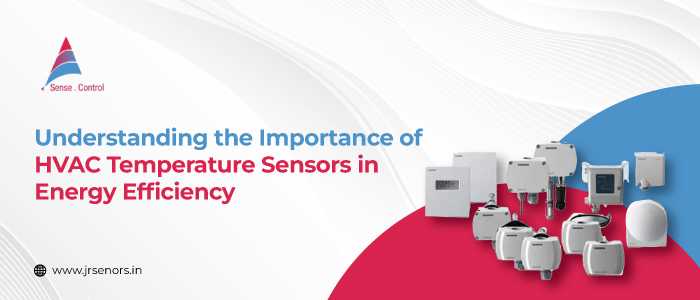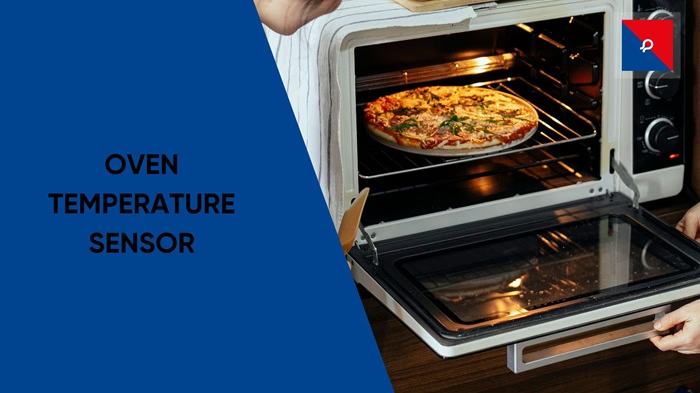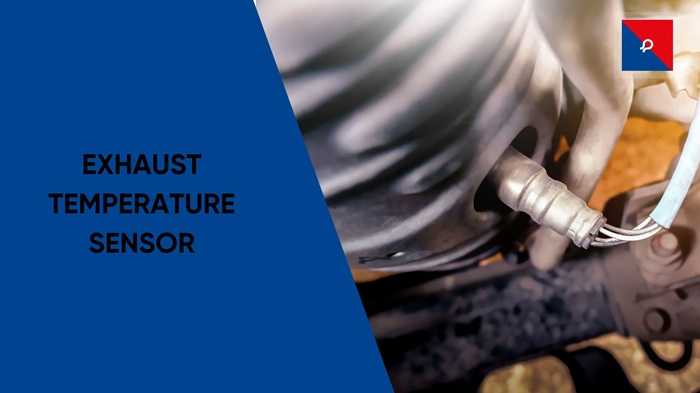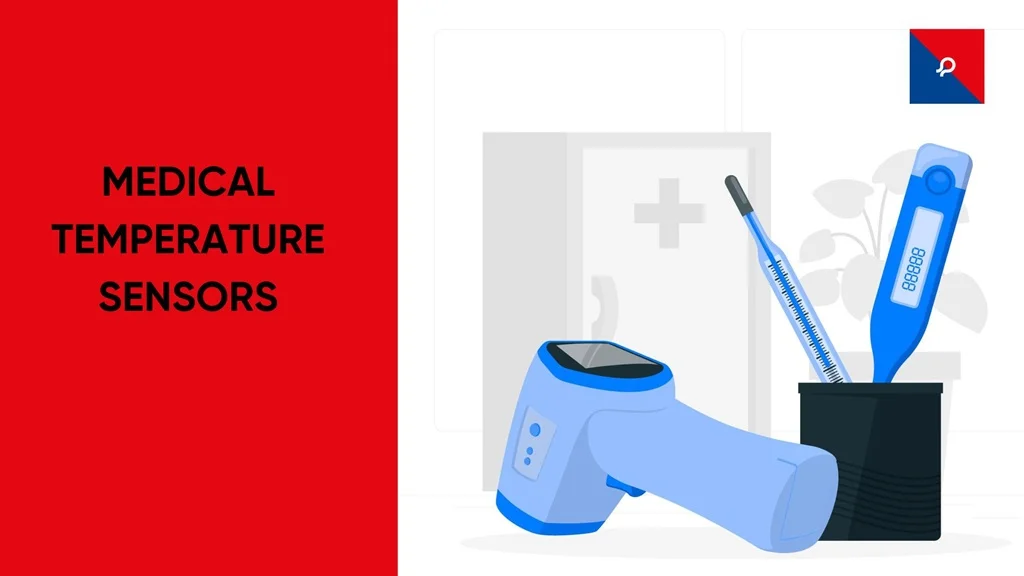
What makes indoor spaces comfortable and bearable in the hottest summer or bone-chilling winter? Well, we all know the appliances like air conditioners and heaters that keep us cozy or cool. But what often goes unnoticed is the intricate technology behind these systems. At the core of this technology lies a crucial component: HVAC temperature sensors. These small devices play a pivotal role in ensuring that heating, ventilation, and air conditioning systems operate efficiently, effectively, and with the utmost precision.
The technology of HVAC systems has evolved significantly over the years, and temperature sensors have become increasingly sophisticated to meet the demands of modern environments. In this insightful blog, we will understand the importance of HVAC sensors in energy efficiency.
The Core Component: Understanding HVAC Temperature Sensors
HVAC temperature sensors serve as the eyes and ears of the system, constantly monitoring the ambient temperature in different areas. They detect even the slightest fluctuations in temperature and relay this data to the HVAC control unit. This real-time information allows the system to make intelligent decisions about how much heating or cooling is required to maintain optimal comfort levels.
Temperature sensors come in various types, including thermocouples, resistance temperature detectors (RTDs), and thermistors, each with their own unique advantages and applications. These sensors are strategically placed throughout to capture temperature variations accurately, ensuring that HVAC systems respond promptly and efficiently to changing conditions.
Personalized Comfort: How Temperature Sensors Enable Precision Control
Temperature sensor for HVAC system provide personalized climate control. By measuring temperature variations in different zones, these sensors allow for targeted heating and cooling, ensuring that occupants experience consistent comfort throughout the day. Whether it’s a sweltering summer afternoon or a frigid winter night, temperature sensors ensure that indoor environments remain comfortable and conducive to productivity.
With advancements in sensor technology and building automation systems, temperature sensors can now be integrated with other smart devices and sensors to create a more holistic approach to indoor climate control. This integration allows for personalized comfort settings based on factors such as occupancy, humidity levels, and even individual preferences, further enhancing the indoor environment.
Efficiency in Action: The Role of Temperature Sensors in Energy Conservation
But the importance of HVAC sensors goes beyond mere comfort. These devices also play a crucial role in energy efficiency. By providing accurate and timely data on temperature levels, sensors enable HVAC systems to operate at peak efficiency. This means that heating and cooling resources are used only when and where they are needed, minimizing energy wastage and reducing utility costs.
Temperature sensor for HVAC system also optimizes their performance by ensuring that heating and cooling are distributed evenly throughout, avoiding hot and cold spots that can lead to energy inefficiencies. Additionally, temperature sensors can be programmed to adjust temperature setpoints based on time of day or occupancy levels, further reducing energy consumption during periods of low demand.
Extending Lifespan: How Temperature Sensors Contribute to HVAC System Reliability
Moreover, HVAC temperature sensors contribute to the longevity and reliability of HVAC systems. By continuously monitoring temperature levels, these sensors help prevent overheating or overcooling, which can lead to excessive wear and tear on equipment. This proactive approach to system monitoring enables early detection of potential issues, allowing for timely maintenance and repairs.
Temperature sensors play a critical role in preventing HVAC system failures by providing early warnings of potential malfunctions or equipment failures. By detecting abnormal temperature fluctuations, sensors can trigger alarms or alerts that prompt maintenance personnel to investigate and address issues before they escalate into costly repairs or downtime.
Integration with Smart Building Technologies: Harnessing the Power of Temperature Sensors
In today’s era of smart buildings, HVAC temperature sensors are becoming increasingly integrated into sophisticated building automation systems (BAS). These systems leverage data from temperature sensors, along with other inputs such as occupancy patterns and outdoor weather conditions, to optimize HVAC performance in real-time. By seamlessly integrating temperature sensor for HVAC system, building managers gain greater control and visibility. This allows for centralized monitoring, automated controls, and predictive maintenance.
The Regulatory Landscape for Energy Efficiency
HVAC temperature sensors are essential components of modern infrastructure. They provide the intelligence needed to regulate indoor climate conditions, ensuring that occupants remain comfortable and productive year-round. Moreover, temperature sensors play a crucial role in optimizing energy usage, enhancing system performance, and contributing to overall sustainability. As the world continues to evolve into smarter, more connected spaces, the importance of HVAC Sensors will only grow, driving innovation and efficiency for years to come.
Future trends such as the Internet of Things (IoT) and artificial intelligence (AI) will likely revolutionize how temperature sensors are integrated, allowing for even greater levels of automation, efficiency, and control. Additionally, advancements in sensor technology, such as miniaturization and wireless communication, will make it easier and more cost-effective to deploy sensors in both new construction and retrofit projects.
To Conclude
Well, we can easily say HVAC sensors have revolutionized the way buildings are heated, cooled, and maintained. Operators who recognize the importance of HVAC temperature sensors stand to reap the benefits of lower operating costs, improved occupant satisfaction, and a reduced environmental footprint.
JR Sensors offers HVAC temperature sensors designed to provide comfort, maintain healthy indoor air quality, and regulate temperature and humidity levels. Our sensors are meticulously crafted to deliver precise and reliable measurements, ensuring optimal performance and efficiency for HVAC systems of all sizes.

Burnt Biscuits? Blame the Sensor – The Hot Truth About Your Oven’s Temperature Troubles
If your oven’s cooking like it’s got a mind of its own, your temperature sensor might be the silent saboteur. From half-baked casseroles to scorched cookies, we break down how this little sensor works, why it matters, and how to fix it—without losing your cool (or your dinner). A fun, practical guide that’s just as useful as it is digestible.

Hot Stuff: Why Your Engine Can’t Live Without an Exhaust Temperature Sensor
Think exhaust sensors are just another car part? Think again. These tiny guardians track fiery exhaust temps, protect turbos, keep emissions in check—and even help you pass that dreaded test. Dive into the witty, down-to-earth guide on how EGT sensors silently save your engine (and your wallet) every day. Bonus: You’ll sound like a car guru by the end.

Tiny Tech, Big Impact: Inside the World of Medical Temperature Sensors
Discover how medical temperature sensors work, why they're crucial in healthcare, and how health sensors are transforming modern medical diagnostics. From wearable tech to high-precision devices, learn about the different types of temperature sensor medical devices used today.